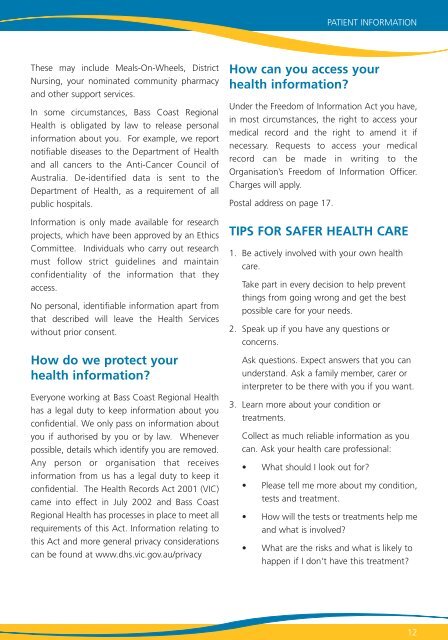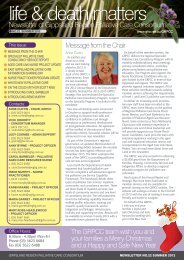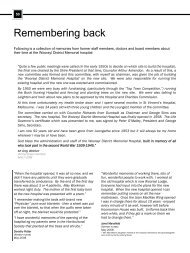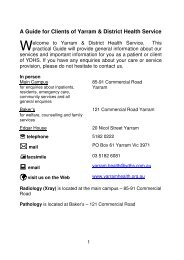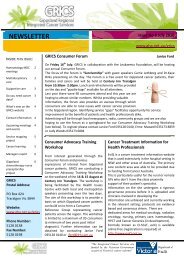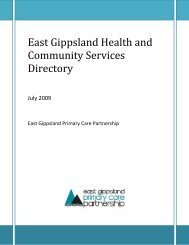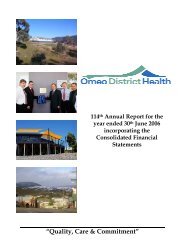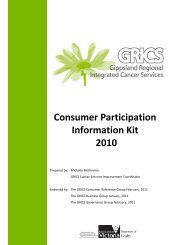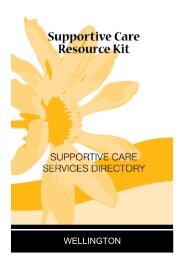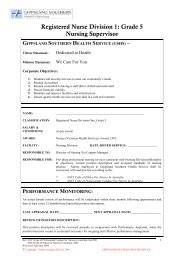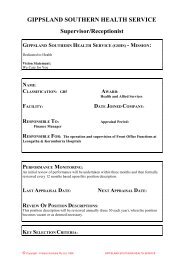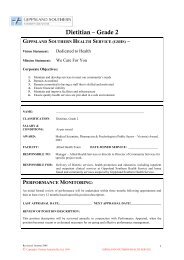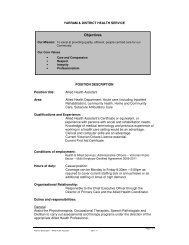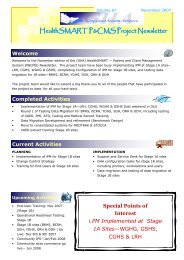HOSPITAL PATIENTS GUIDE
HOSPITAL PATIENTS GUIDE
HOSPITAL PATIENTS GUIDE
You also want an ePaper? Increase the reach of your titles
YUMPU automatically turns print PDFs into web optimized ePapers that Google loves.
PATIENT INFORMATION<br />
These may include Meals-On-Wheels, District<br />
Nursing, your nominated community pharmacy<br />
and other support services.<br />
In some circumstances, Bass Coast Regional<br />
Health is obligated by law to release personal<br />
information about you. For example, we report<br />
notifiable diseases to the Department of Health<br />
and all cancers to the Anti-Cancer Council of<br />
Australia. De-identified data is sent to the<br />
Department of Health, as a requirement of all<br />
public hospitals.<br />
Information is only made available for research<br />
projects, which have been approved by an Ethics<br />
Committee. Individuals who carry out research<br />
must follow strict guidelines and maintain<br />
confidentiality of the information that they<br />
access.<br />
No personal, identifiable information apart from<br />
that described will leave the Health Services<br />
without prior consent.<br />
How do we protect your<br />
health information?<br />
Everyone working at Bass Coast Regional Health<br />
has a legal duty to keep information about you<br />
confidential. We only pass on information about<br />
you if authorised by you or by law. Whenever<br />
possible, details which identify you are removed.<br />
Any person or organisation that receives<br />
information from us has a legal duty to keep it<br />
confidential. The Health Records Act 2001 (VIC)<br />
came into effect in July 2002 and Bass Coast<br />
Regional Health has processes in place to meet all<br />
requirements of this Act. Information relating to<br />
this Act and more general privacy considerations<br />
can be found at www.dhs.vic.gov.au/privacy<br />
How can you access your<br />
health information?<br />
Under the Freedom of Information Act you have,<br />
in most circumstances, the right to access your<br />
medical record and the right to amend it if<br />
necessary. Requests to access your medical<br />
record can be made in writing to the<br />
Organisation’s Freedom of Information Officer.<br />
Charges will apply.<br />
Postal address on page 17.<br />
TIPS FOR SAFER HEALTH CARE<br />
1. Be actively involved with your own health<br />
care.<br />
Take part in every decision to help prevent<br />
things from going wrong and get the best<br />
possible care for your needs.<br />
2. Speak up if you have any questions or<br />
concerns.<br />
Ask questions. Expect answers that you can<br />
understand. Ask a family member, carer or<br />
interpreter to be there with you if you want.<br />
3. Learn more about your condition or<br />
treatments.<br />
Collect as much reliable information as you<br />
can. Ask your health care professional:<br />
• What should I look out for?<br />
• Please tell me more about my condition,<br />
tests and treatment.<br />
• How will the tests or treatments help me<br />
and what is involved?<br />
• What are the risks and what is likely to<br />
happen if I don't have this treatment?<br />
12


